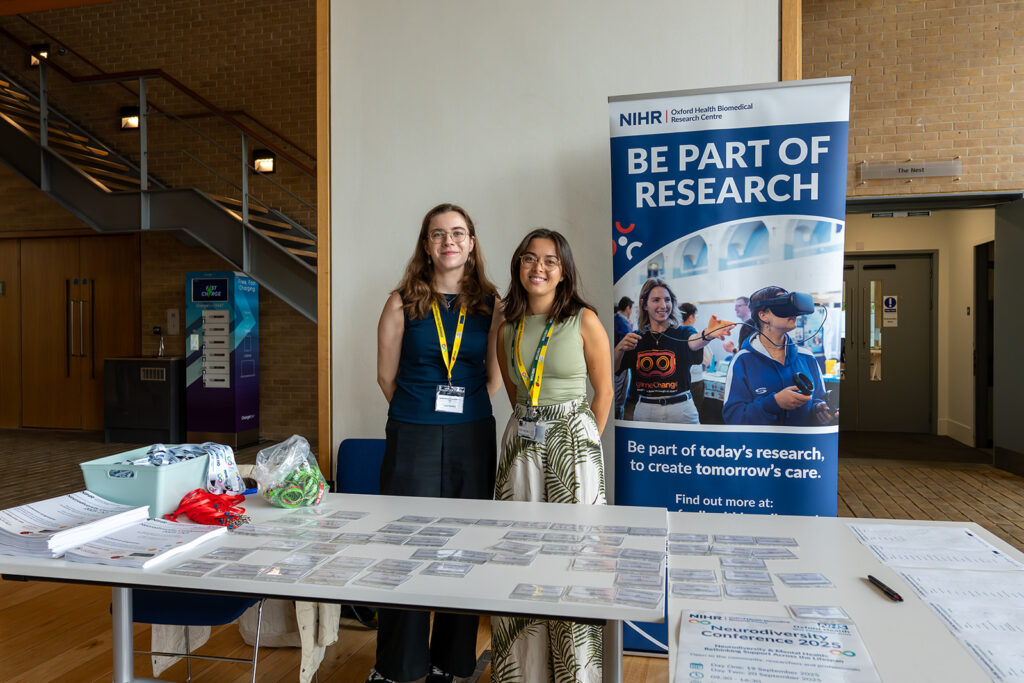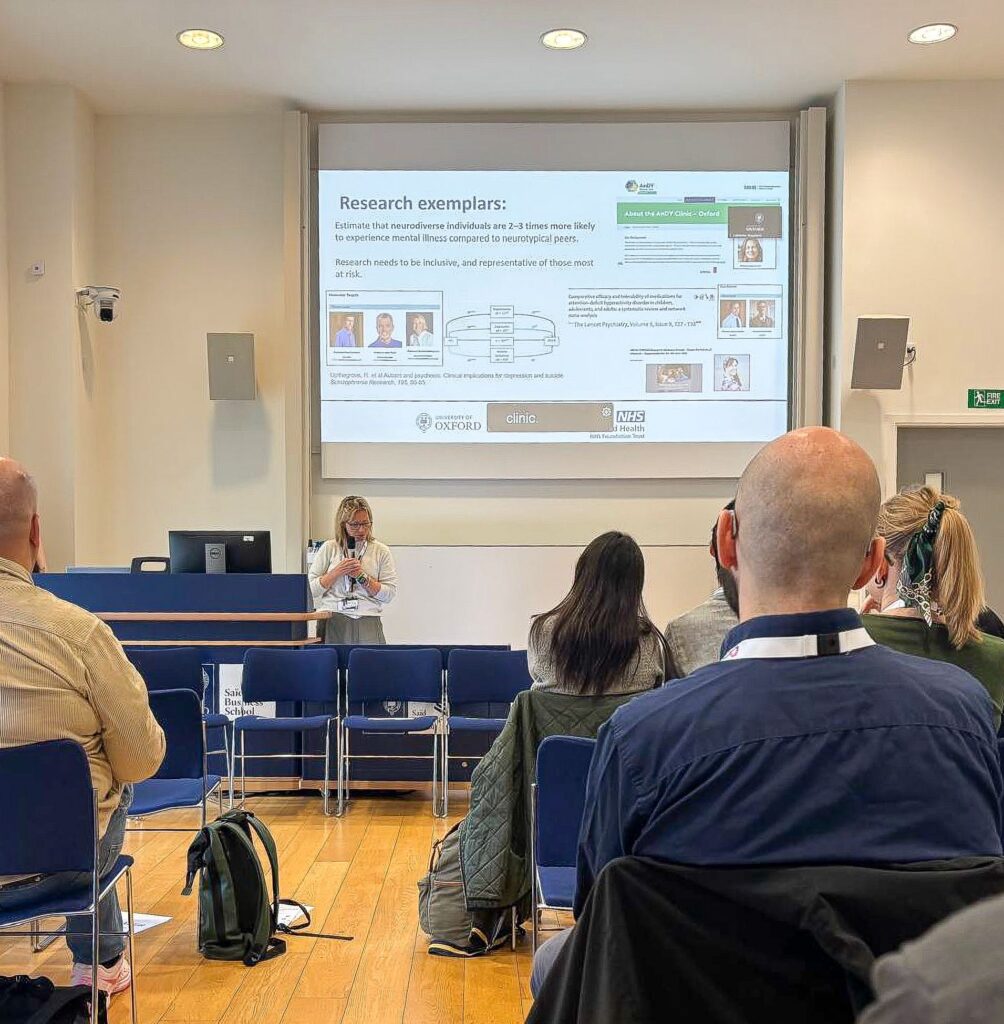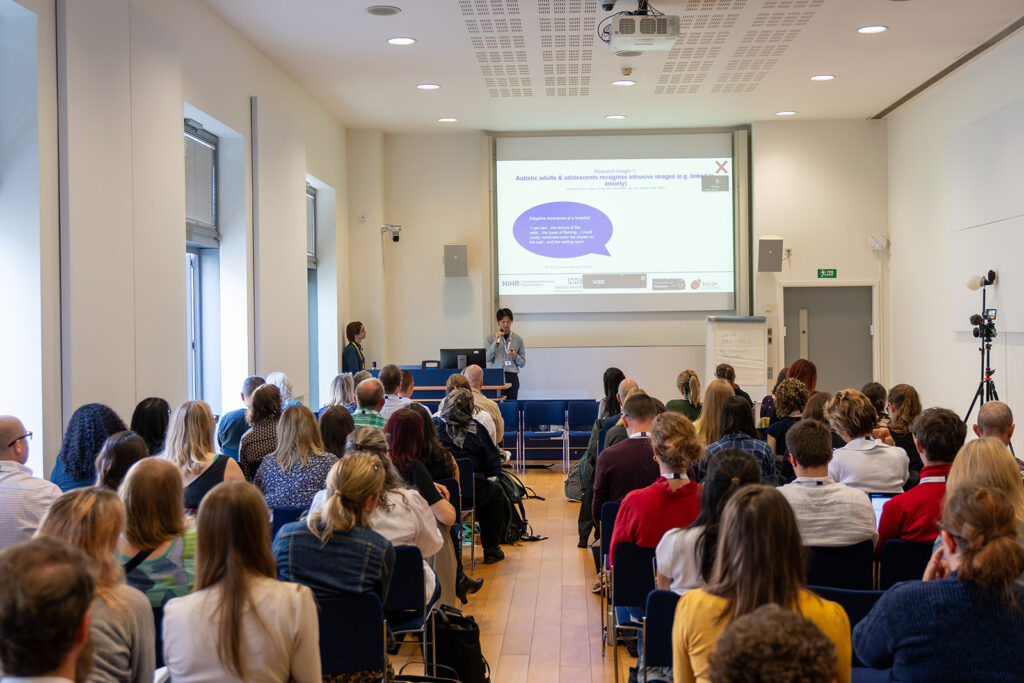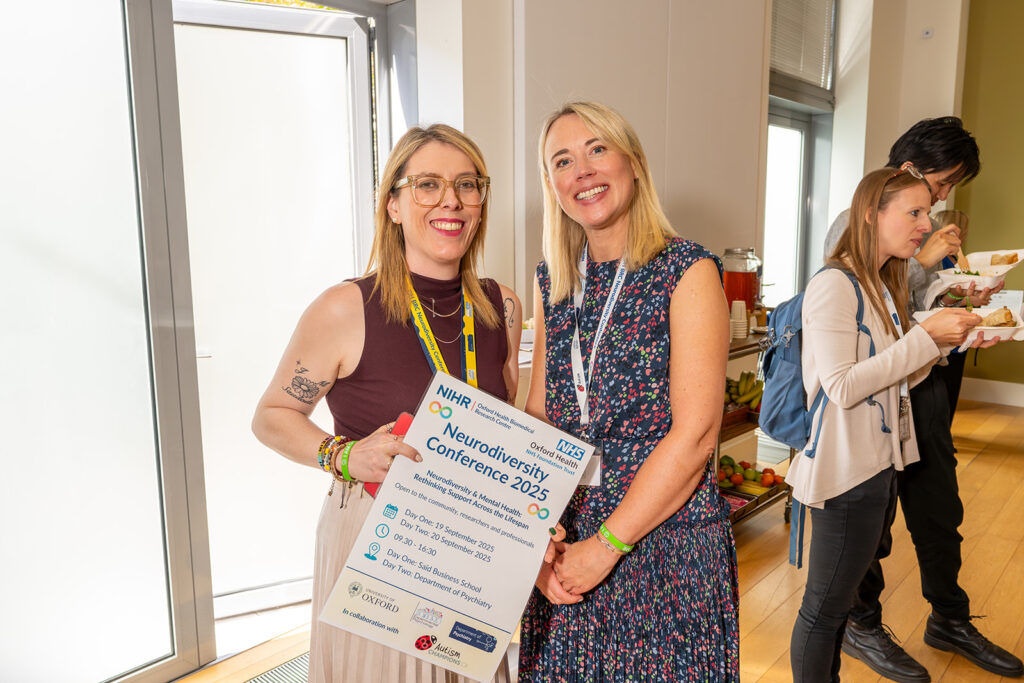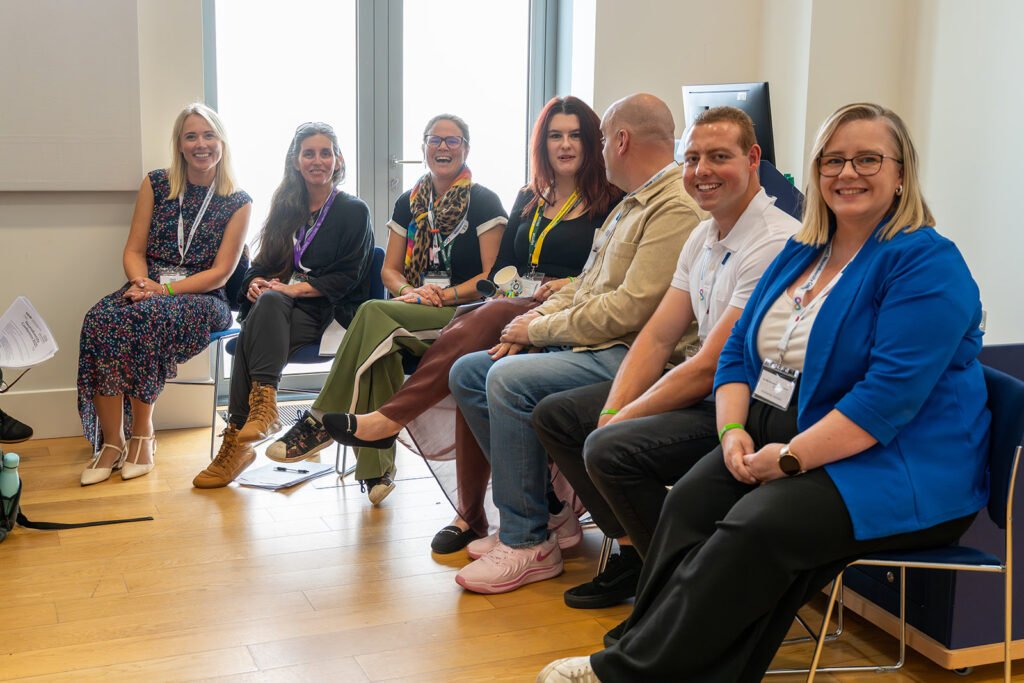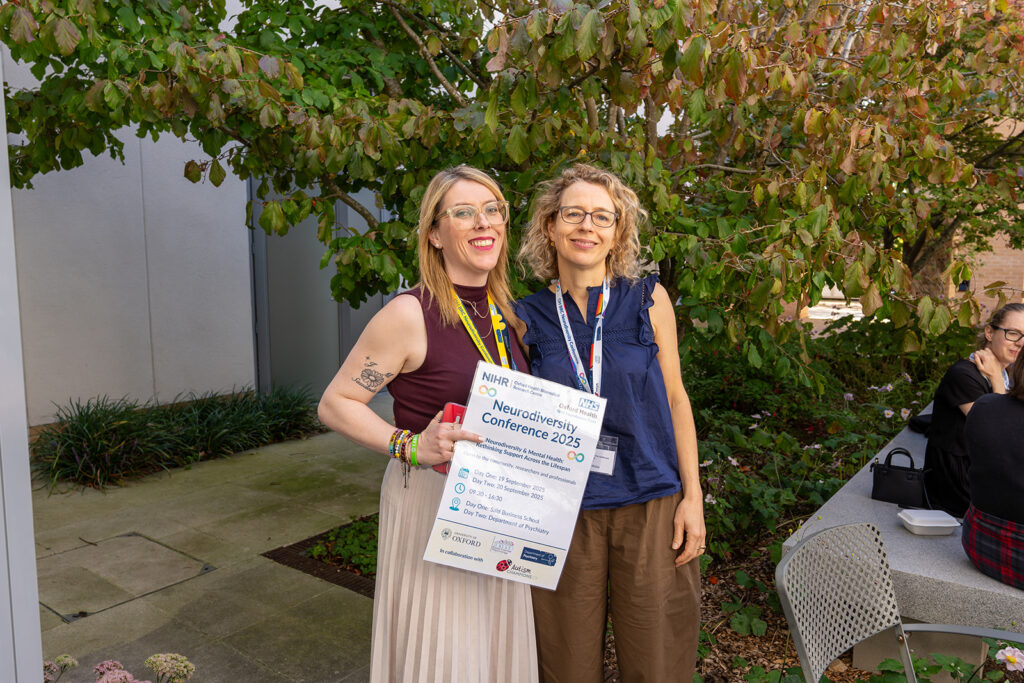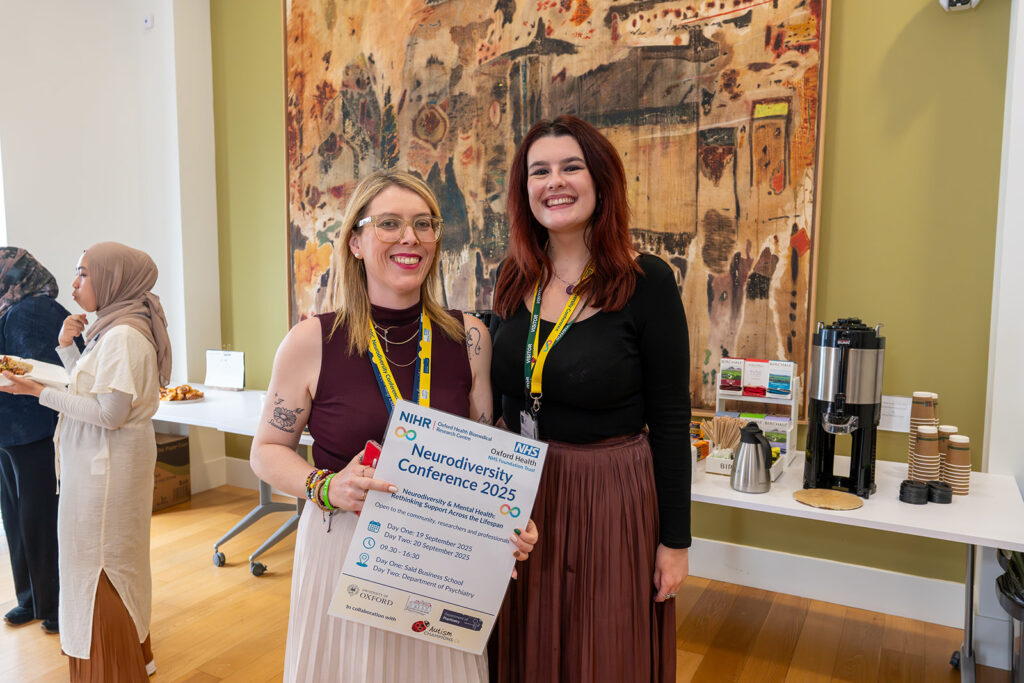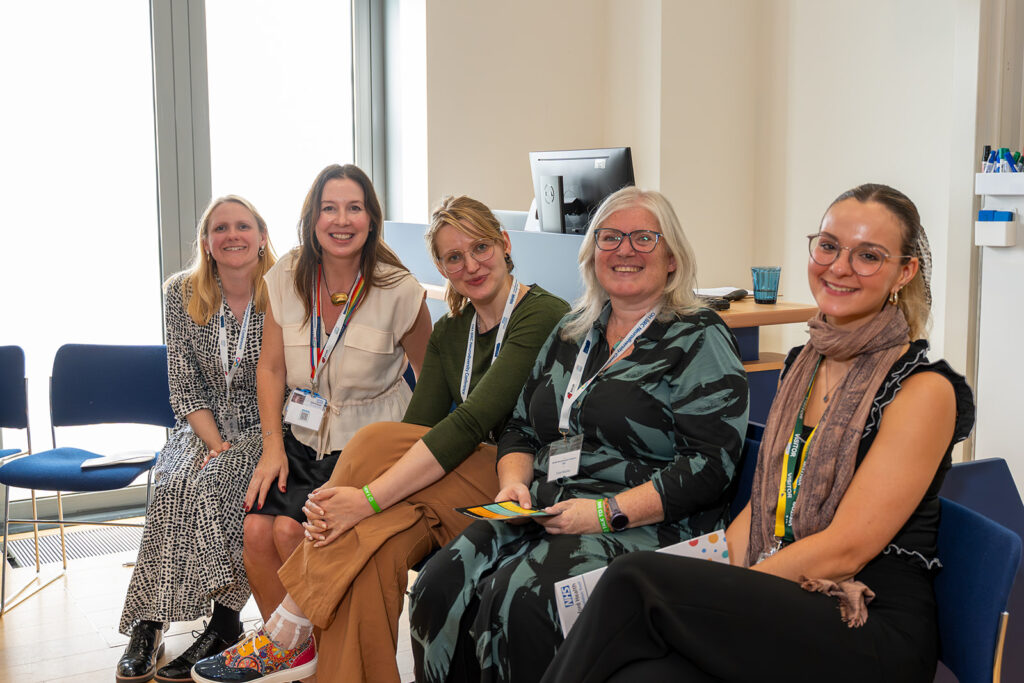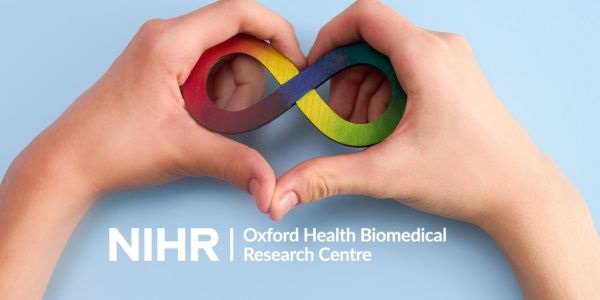
Oxford’s first Neurodiversity Conference, hosted by the Oxford Health Biomedical Research Centre (OH BRC), took place recently, bringing together clinicians, researchers, local organisations, members of the public and the neurodivergent community to discuss current and future research and areas for potential collaboration.
Day one of the 2-day event at the Saïd Business School focused on research, day two was dedicated to lived experience, hosted at the University of Oxford’s Department of Psychiatry
The event included flash talks and panel discussions on topics including:
- adapting mental health interventions for neurodivergent individuals
- lived experience in action
- mental health support and co-occurring conditions
- mechanistic approaches to mental health and neurodiversity
- working together with families.
Speakers at the event included researchers and clinicians from the University of Oxford and charity partners Autism Champions.
The conference offered a welcoming environment with neuro-affirmative measures put into place for the comfort of neurodiverse attendees with the provision of sensory aids including fidget spinners and headphones. Attendees were encouraged to move freely around the venues, stim and take breaks when needed. Inclusive language was used throughout presentations, and access to a quiet room and outdoor space were also provided.
Speakers at the conference included OH BRC Mental Health in Development Theme Lead Professor Cathy Creswell, Paul Foundation Professor of Clinical Development Psychology at the University of Oxford, Dee Nic Sitric, Director of Autism Champions and Dr Jiedi Lei, Paul Foundation Clinical Research Fellow at the University of Oxford’s Department of Psychiatry.

OH BRC Director Professor Rachel Upthegrove MBE, delivered the keynote on day one and told us: “There is a breadth of focus on neurodiversity across OH BRC, from interventions in anxiety and depression, to best practice in prescribing. From my team’s research, we now know that neurodivergent individuals are more likely to experience psychosis compared to their neurotypical peers. Although most neurodivergent people do not develop psychosis, understanding the impact of this co-morbidity when it does occur is important. We have shown that there may be an increased risk of suicidal thinking and behaviour, which may be related to an increased sense of hopelessness. This is an important consideration for clinicians to be aware of and is something we act on and change to make a difference to people’s lives.”
“A key consideration across the whole of OH BRC is diversity and inclusion and ensuring our research is representative of the whole population, otherwise outcomes lack meaningful impact. We must include real voices in order that we can make a real impact for patients, their families and communities. I was delighted to be a part of this sold-out event and see clinicians, researchers and people with lived experience come together.”
On day two, an inspirational keynote was given by Leandra Hamblin, neurodiversity advocate and founder of SENtipede, a support group for parents of children with special educational needs. The session was followed by talks and workshops on neurodivergent voices shaping research, demystifying the research process and reflections, impact and inspiration.

Andreia Costa, OH BRC Training and Career Development Project Manager, lead the planning and organisation of the conference, inspired by her own lived experience and vision for more inclusive research and support.
Andreia said: “When I joined Oxford Health BRC, I didn’t realise that I could connect with so many researchers. I was already working with the neurodivergent community and felt sure it would be productive and interesting to bring everyone together to explore current and future research efforts in Neurodiversity.
“My eight-year-old daughter is autistic with speech and language delay and in many ways, she is the reason this conference took place. I am thrilled that we were able to make this event happen. Thank you to everyone who has helped organise and support it, and to those who attended to make both days such a success. A special thank you to members of the Neurodiversity and Disability Working Group at the Department of Psychiatry for their input.”
This landmark event, sold out rapidly, reflecting significant community interest and engagement with over 120 attendees. The success of the event has prompted discussion amongst organisers and stakeholders about establishing it as a recurring annual fixture. “The response has been phenomenal,” said a spokesperson from the organising committee. “We’re already exploring how to make this an annual event to continue building momentum and inclusion around neurodiversity and research efforts.”
Congratulations to colleagues from the OH BRC, the University of Oxford’s Department of Psychiatry and Department of Experimental Psychology, OH BRC Equality, Patient and Public Involvement teams, the University of Oxford Counselling services and charity partners Autism Champions who worked to organise this inaugural event.
To learn more about OH BRC contact: ohbrcenquiries@oxfordhealth.nhs.uk
